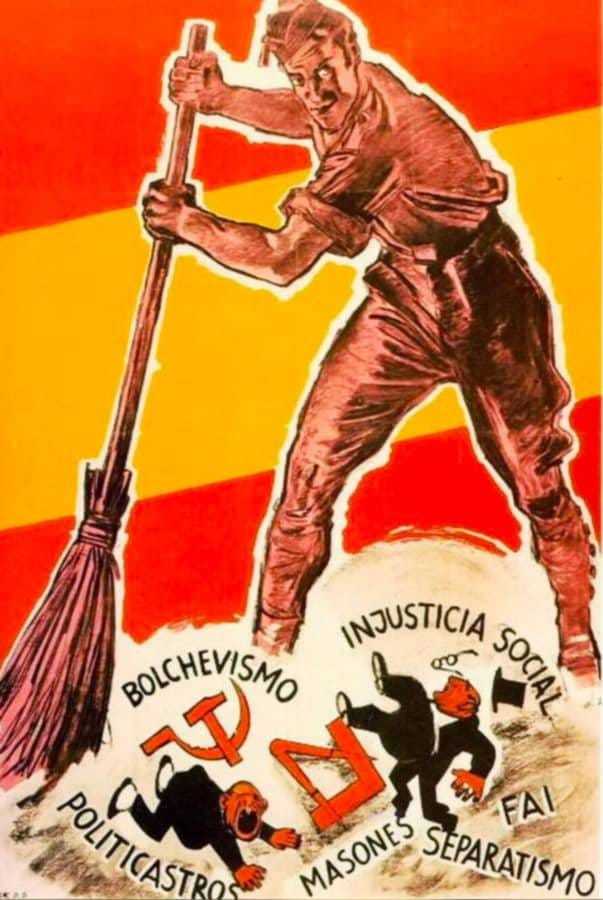Freemasons and the Spanish Civil War
The left wing side of the Spanish Civil War not only had strong Jewish support, but also an extremely high amount of involvement from freemasons. Pere Sánchez Ferré, a Spanish historian specialized in studying freemasonry,1 concluded that there was heavy masonic involvement in the Second Spanish Republic from the very beginning.2
Six out of eleven ministers of the Republic’s provisional government, which held power from the time the King was overthrown until the ratification of the constitution, were freemasons. After this, freemasons constituted 183 of the 458 deputies in the constituent assembly, the body responsible for shaping said constitution.3
The vast majority of these masonic deputies were part of far left extremist political parties, and constituted a majority of the deputies in many of them. Freemasons constituted 10 out of 26 of the deputies from Republican Left of Catalonia, 19 out of 28 of the deputies from Republican Action, 34 out of 54 of the deputies from the Radical-Socialist Party, 44 out of 119 of the deputies from the Spanish Socialist Workers Party, and 48 out of 89 of the deputies from other federal factions.4
Just like with other masonic governments, the Spanish freemasons immediately began working on policies that would benefit their Jewish masters. In 1934 the Republic began policies of increasing Jewish immigration and naturalization.5 The Republic also began a crackdown on Christianity in Spain, putting in place policies designed to weaken and antagonize the Church. The anti-religious fervor whipped up by the far left culminated in the burning of Churches and later during the civil war the torture and murder of thousands of priests and nuns.6 When the Spanish civil war broke out and Nationalists posed a threat to these policies, the Jewish Communist International began organizing volunteer brigades and thousands of Jewish volunteers flooded the country to aid the masonic government. During the civil war, the president of the Republic was the freemason Manuel Azaña.7 The Second Spanish Republic’s philosemitic, anti-Christian policies would have only increased and intensified had the Nationalists not defeated the Republicans and restored sanity to Spain.
Pere Sánchez Ferré, La maçoneria a Catalunya (in Catalan), L'Avenç 76, 1984, pp. 53-61.
ibid.
ibid.



